'A fast course made for serious gaps' – Tour de France team time trial preview
Matt White details the 35km course, Nico Portal explains impact of team size reduction
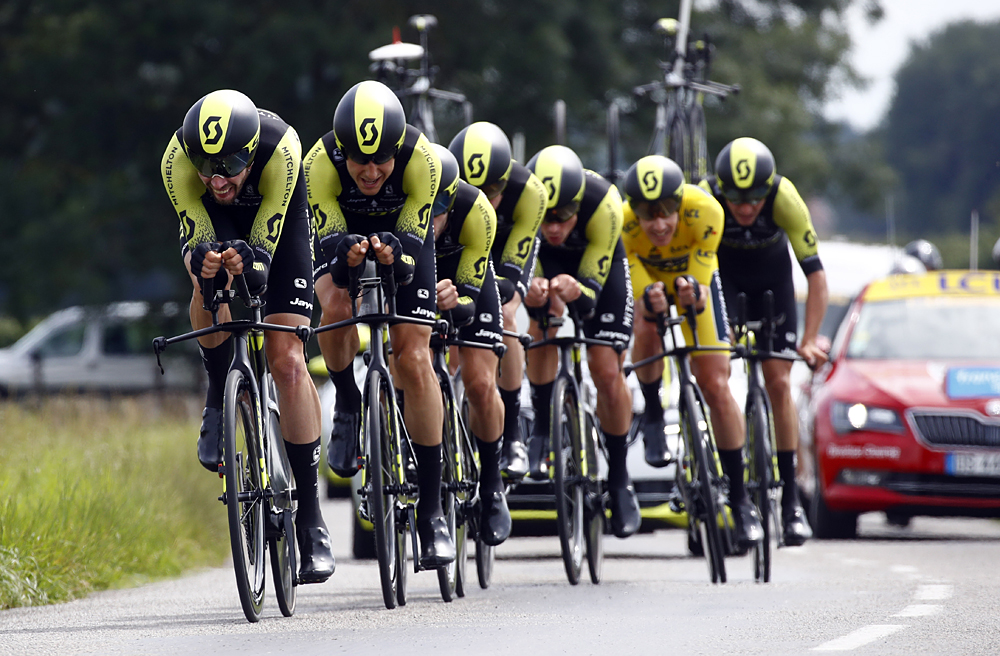
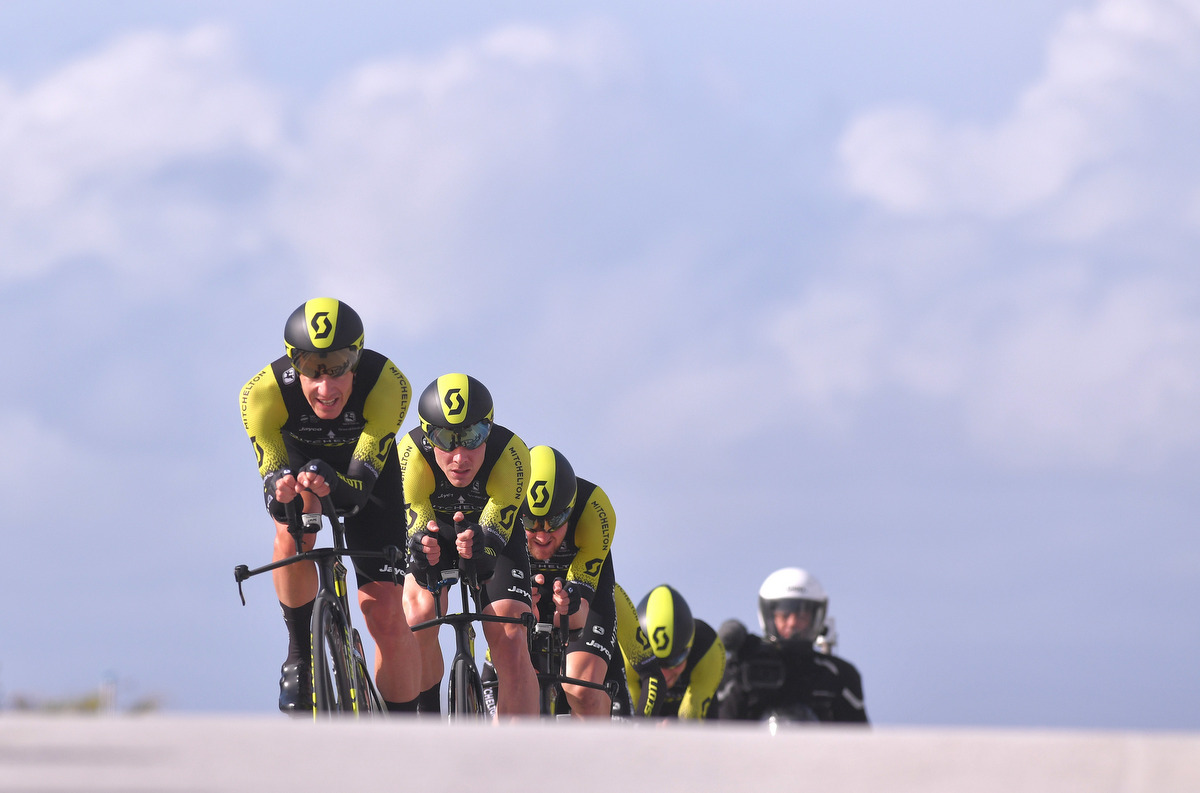
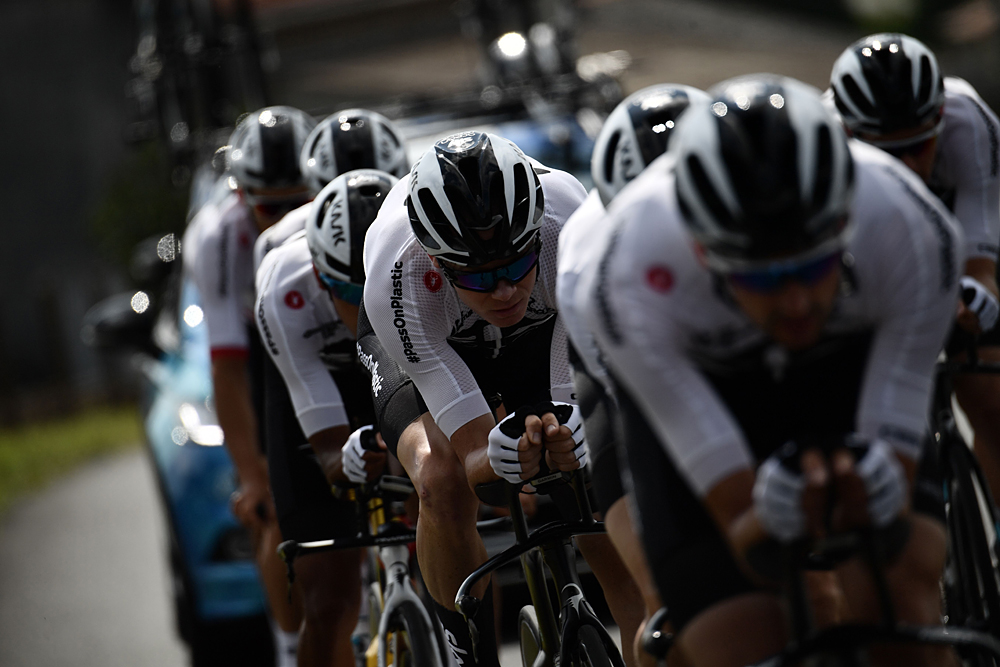
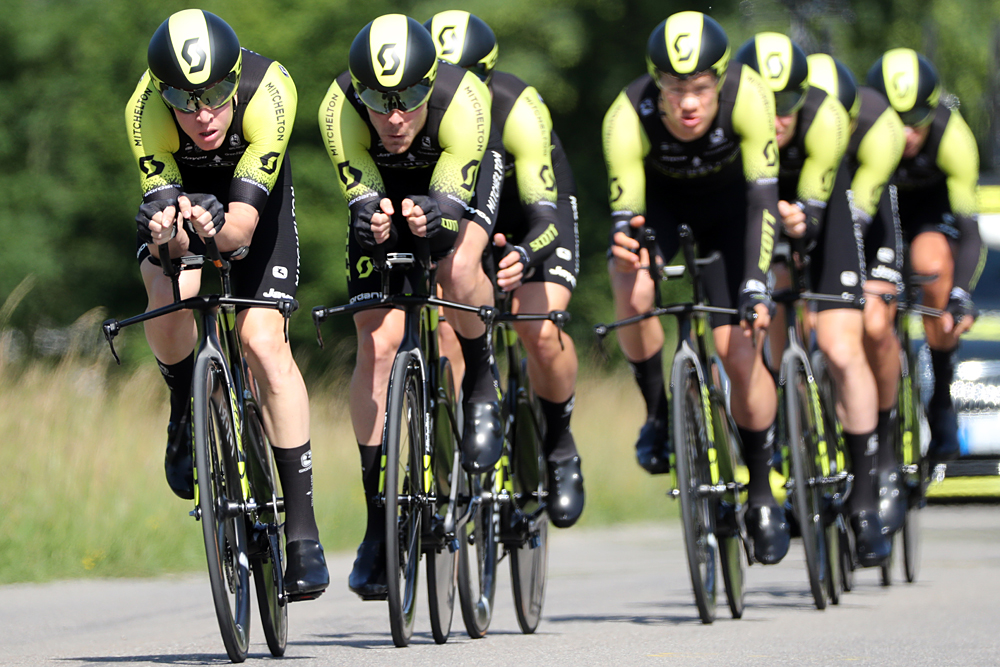
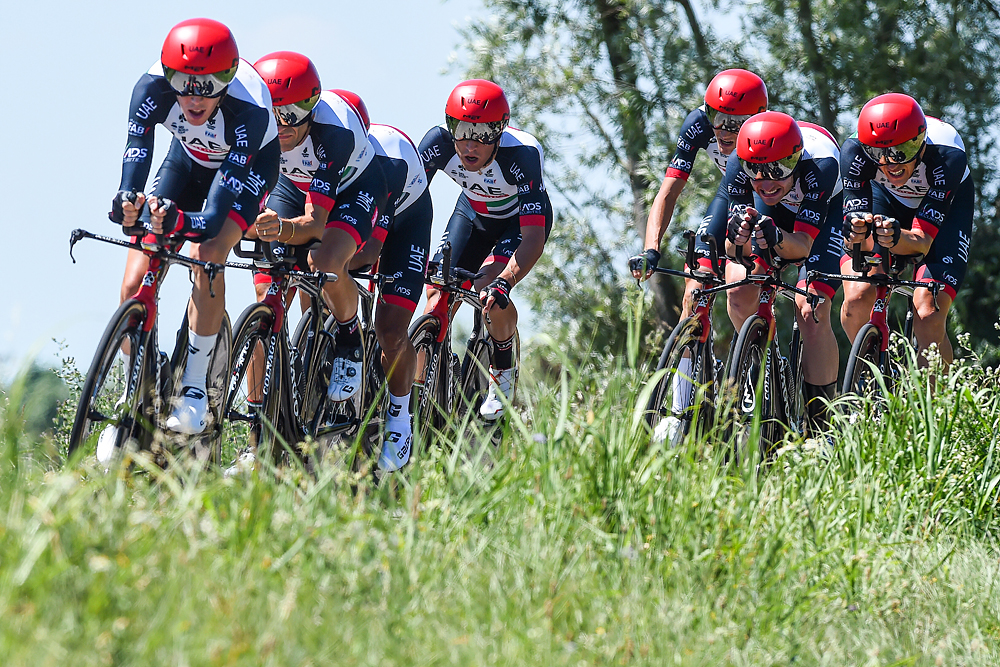
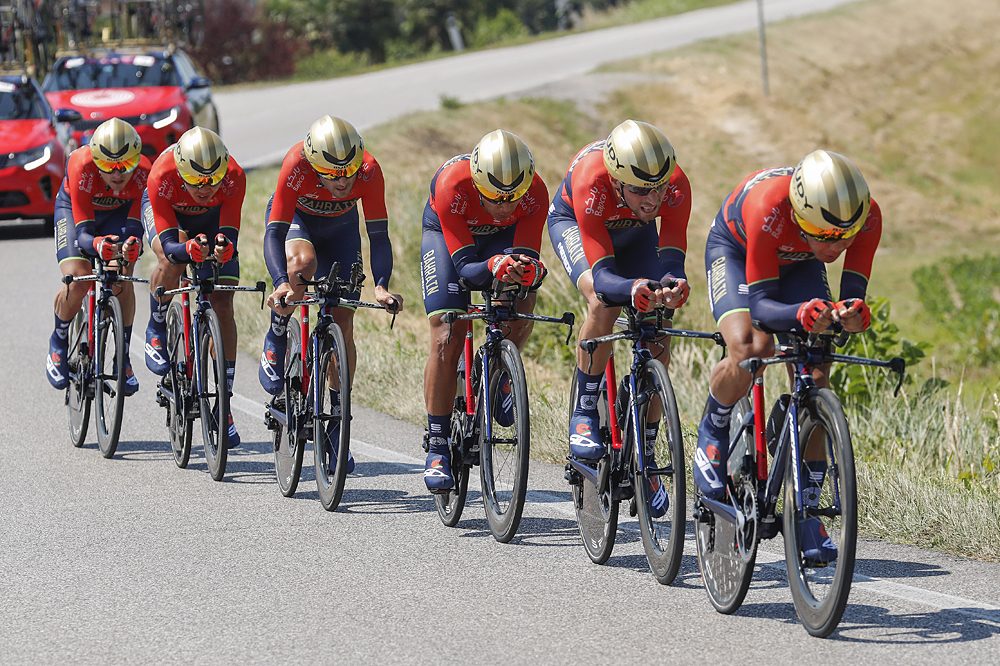
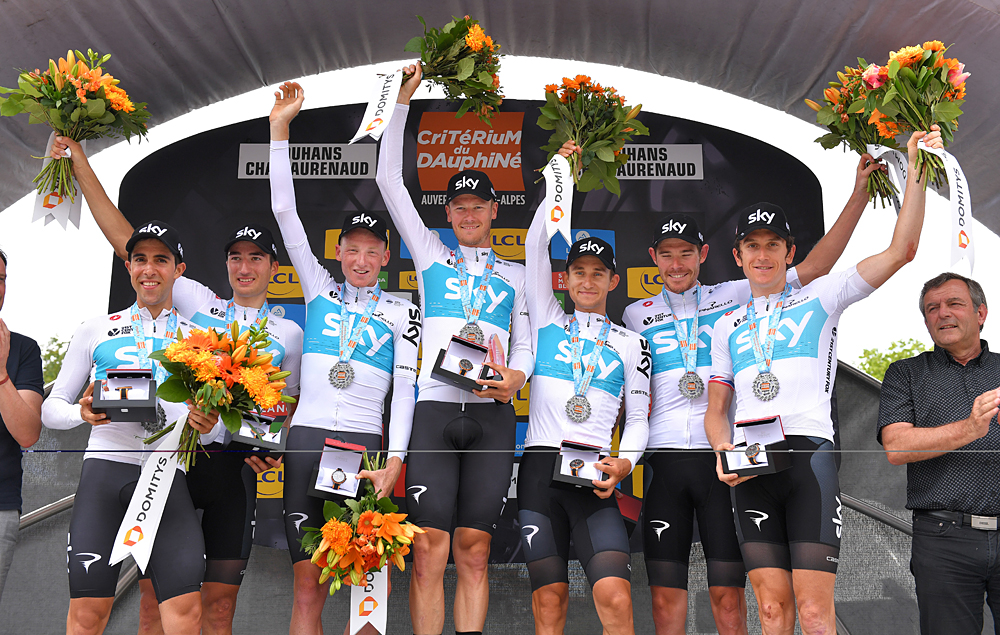
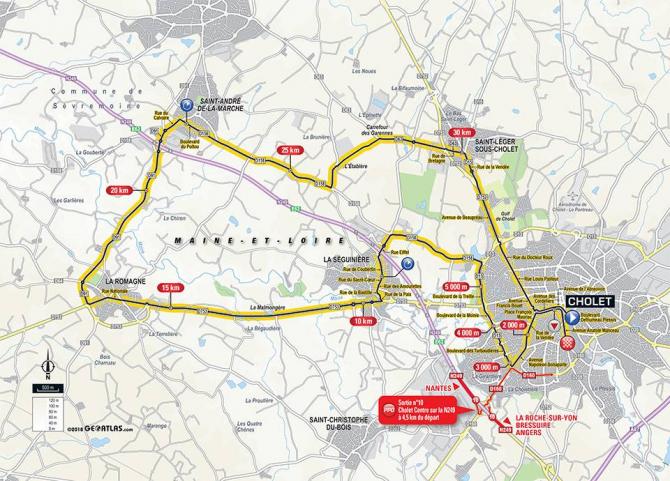
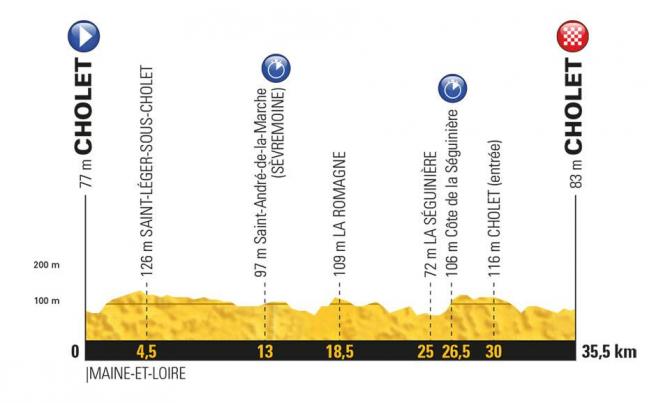
The 2018 Tour de France has come out of the blocks in breathless, chaotic, and unruly fashion, and that's just from what should have been, on paper, at least, two of the most straightforward days of the whole race. A more obvious flashpoint awaits on Monday – the stage 3 team time trial – and it's all set to explode again.
Criterium du Dauphine: Team Sky win team time trial
Thomas: Dauphine TTT was one of the best I've ever been in
Tour de Suisse: BMC Racing win opening team time trial in Frauenfeld
Richie Porte puts BMC crunch time aside to celebrate Suisse TTT win
Adriatica Ionica Race: Quick-Step Floors win opening team time trial
Mitchelton-Scott brush themselves down after crashes to target team time trial
In the words of Mitchelton-Scott directeur sportif Matt White, "There are going to be some serious gaps."
Thanks to all the crashes, punctures, and broken wheels on the opening stage, that establishment of a first general classification is now set to be shaken up again entirely.
Chris Froome (Team Sky) is already 50 seconds down on most of his rivals, as are Richie Porte (BMC) and Adam Yates (Mitchelton-Scott). Movistar's Nairo Quintana is even worse off, at more than a minute back. Some of the biggest names in the race, therefore, will have to scramble just to try to break even again on what could be a stage that is as decisive as any mountain stage.
The course
Stage 3's team time trial course is 35.5 kilometres long, starting and finishing in the centre of Cholet. The route heads west out of town before tipping south and heading back east at La Romagne and finishing just a few hundred metres from the start line.
The terrain is lightly undulating, with one designated climb – the Côte de la Séguinière after 26km – although it is only a few hundred metres long and not overly steep. There are two intermediate checkpoints: the first after 13km, and the second at the top of the climb at 26.5km.
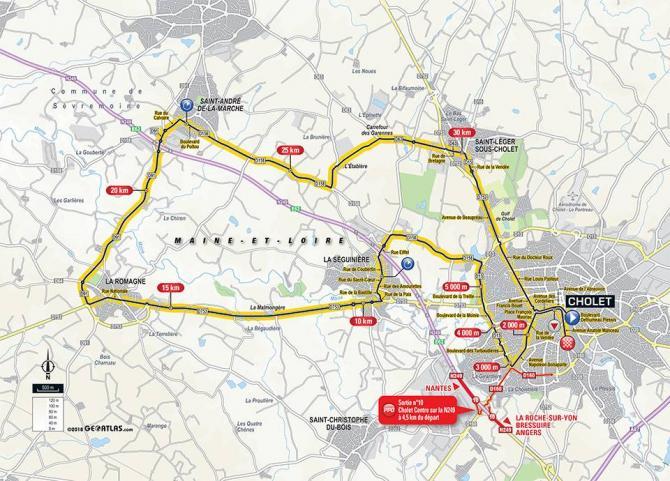
The route around Cholet of the 2018 Tour de France stage 3 team time trial
Get The Leadout Newsletter
The latest race content, interviews, features, reviews and expert buying guides, direct to your inbox!
Almost every rider and sports director Cyclingnews has spoken to has reached immediately for the same word: fast. Teams reported speeds of more than 80kph on the downhill sections in training, and that could increase between kilometres five and 18, where light tailwinds are expected. Towards the start and the end, the wind is set to blow straight across the course and could be a factor.
Cyclingnews spoke to Mitchelton-Scott's Matt White to get a detailed description of what to expect from the course.
"It's a fast, flowing 'triple T', but I wouldn't say it's technical," said White. "The only technical aspect of it is that there are a lot of roundabouts. Off the top of my head, I think there are around 15 of them. What that does is that it complicates things at high speed, getting eight guys through a roundabout, and I think the teams who are technically good are going to have an advantage there because every time you go through a roundabout, you can win or lose a second.
"It's hillier than it probably looks on the profile, and there are a couple of sections there that are quite hilly, but it's all big chainring. The difference between this and other team time trials I've seen in the past is that I don't think there's even a 5km section that you can actually relax on and get into a proper rhythm.
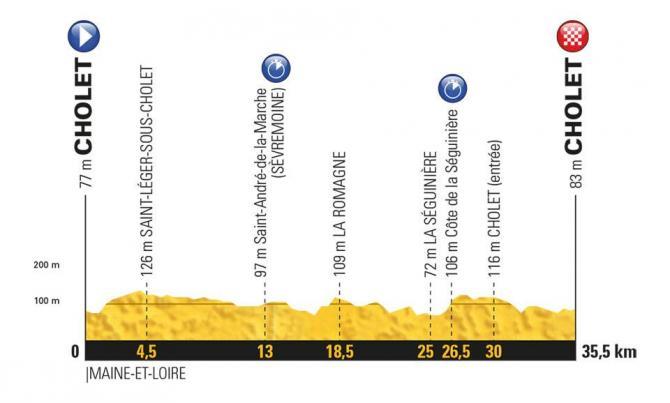
"It's hillier than it probably looks on the profile," says Mitchelton-Scott directeur sportif Matt White
"Instead, it's always getting broken up by entering a town, going left, going right, going through a roundabout, so that's what breaks the rhythm up. It's not technical, it's not dangerous, but that constant change of rhythm means that it certainly favours the teams who know how to ride.
"When we checked it out, there was very little wind, and there were multiple sections where the guys hit 80kph, so it's a very fast one, and even if the wind does pick up, and because it is *à bloc*, there are going to be tailwind sections. It's going to be a fast one."
The contenders
When it comes to team time trials, the first two names on a lot of people's lips are BMC and Quick-Step. They have traditionally shared out the TTT world title, although Sunweb are the current champions and will be powered along by individual time trial world champion Tom Dumoulin on what is a crucial day in the Dutchman's bid for the yellow jersey.
Team Sky are always up there in the TTTs, and their victory at the recent Critérium du Dauphiné, over 31 similar kilometres, and with a chunk of their Tour squad present, makes them serious contenders for the stage. For Froome, of course, it's simply a case of damage reparation, but his teammate Geraint Thomas, seventh overall at 15 seconds, could well move into the yellow jersey.
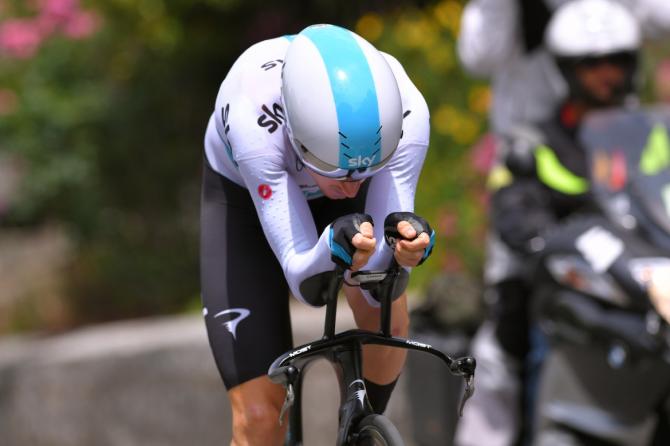
Team Sky's Geraint Thomas could take the yellow jersey after Monday's team time trial
Adam Yates is a lightweight climber, but is surrounded by a strong Mitchelton-Scott team with plenty of TTT pedigree, although three of them crashed on Sunday and Yates is one of those already nearly a minute down on a number of GC rivals.
Primoz Roglic and Steven Kruijswijk are strong time triallists in a decent LottoNL-Jumbo team, while Ilnur Zakarin can count on former TT world champion Tony Martin at the Katusha-Alpecin squad.
For Romain Bardet, it will be an exercise in limiting losses, although AG2R were buoyed by their performance at the Dauphiné, where their manager Vincent Lavenu said their hard work on the discipline was starting to pay off.
From a GC perspective, those who might be concerned include Dan Martin's UAE Team Emirates and 2014 Tour champion Vincenzo Nibali's Bahrain-Merida. Both were poor at the Dauphiné, but will take solace from the fact that their Tour squads look very different. Indeed, Kristijan Koren, the Izaguirre brothers, and Sonny Colbrelli helped Bahrain-Merida to seventh place at the Tour de Suisse TTT a few days later.
Movistar have three GC leaders to cram into the four riders with which they must cross the finish line to record a time, with time trialling being far from Nairo Quintana and Mikel Landa's preferred discipline, even if Alejandro Valverde can defend himself pretty well against the clock.
With team sizes reduced to eight riders, those who have lost riders will be heavily disadvantaged. For that reason, team time trials almost always take place in the first week, but you can't avoid the chaos of the opening stages.
Astana's Jakob Fuglsang lost a key engine in Luis Leon Sanchez, who abandoned with broken bones on Sunday's second stage, while Bauke Mollema will have to cope without Tsgabu Grmay, who abandoned the race sick during stage 2.
Although still in the race, it is difficult to see Lawson Craddock – who farctured his scapula in a crash on Saturday and is merely trying to survive as long as possible – playing any meaningful role for EF Education First-Drapac and their leader Rigoberto Urán.
"I would put three teams – Sky, BMC, ourselves, and maybe Quick-Step – at another level above most of the teams here," said White. "I think there are going to be serious gaps. I reckon two-and-a-half minutes to three minutes between the first and the last team."
Eight-man teams
One curiosity of the stage 3 team time trial is that it's the first Grand Tour TTT since team sizes were reduced from nine riders to eight. As such, times will be taken when the fourth rider crosses the line, rather than the fifth, as was the case when there were teams of nine.
The change in team sizes was designed to make for safer and also more open racing, although it's set to have a significant impact when it comes to team time trials in the Grand Tours.
Team Sky directeur sportif Nicolas Portal explained that for a traditionally strong outfit like them, the change comes as something of a handicap.
"In the one-week races, it has gone down from you having eight riders starting to seven, but it is still the first four across the line. With that being the case, logic would dictate that with it going from nine riders to eight at Grand Tours, the first five should still count, but it's only four," Portal said.
"So what we have is a situation where the TTTs in both a one-week race and a three-week race are decided by four riders, and that's quite annoying.
"What makes the difference is that it's much more difficult for a team that's not as smooth in a time trial to keep five riders, because they obviously have to wait for the fifth rider," said Portal. "You make it four riders and that way the teams who are maybe not as strong lose less time."
Be that as it may, stage 3's team time trial stage will be another crucial day at this year's Tour de France.

Patrick is a freelance sports writer and editor. He’s an NCTJ-accredited journalist with a bachelor’s degree in modern languages (French and Spanish). Patrick worked full-time at Cyclingnews for eight years between 2015 and 2023, latterly as Deputy Editor.
